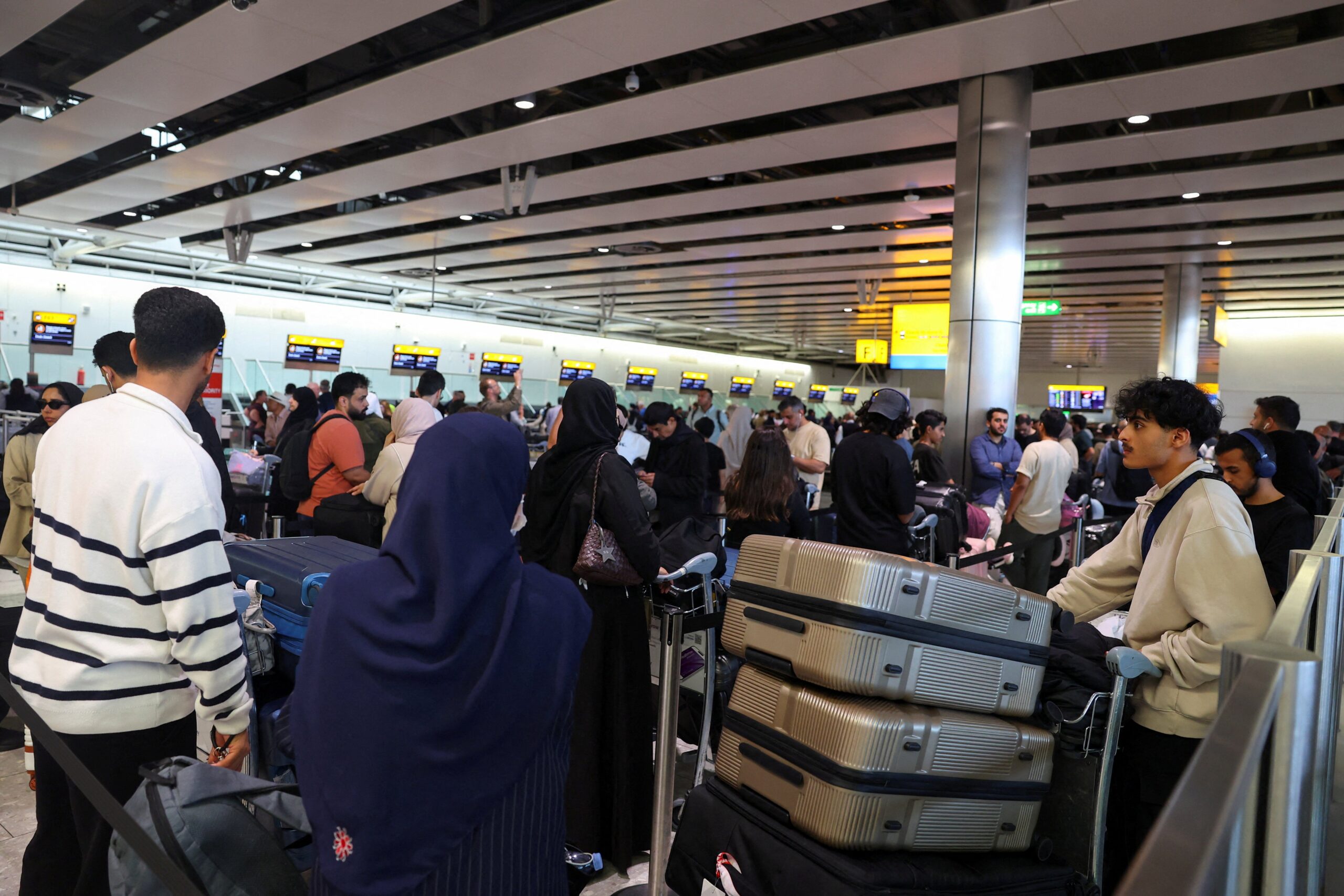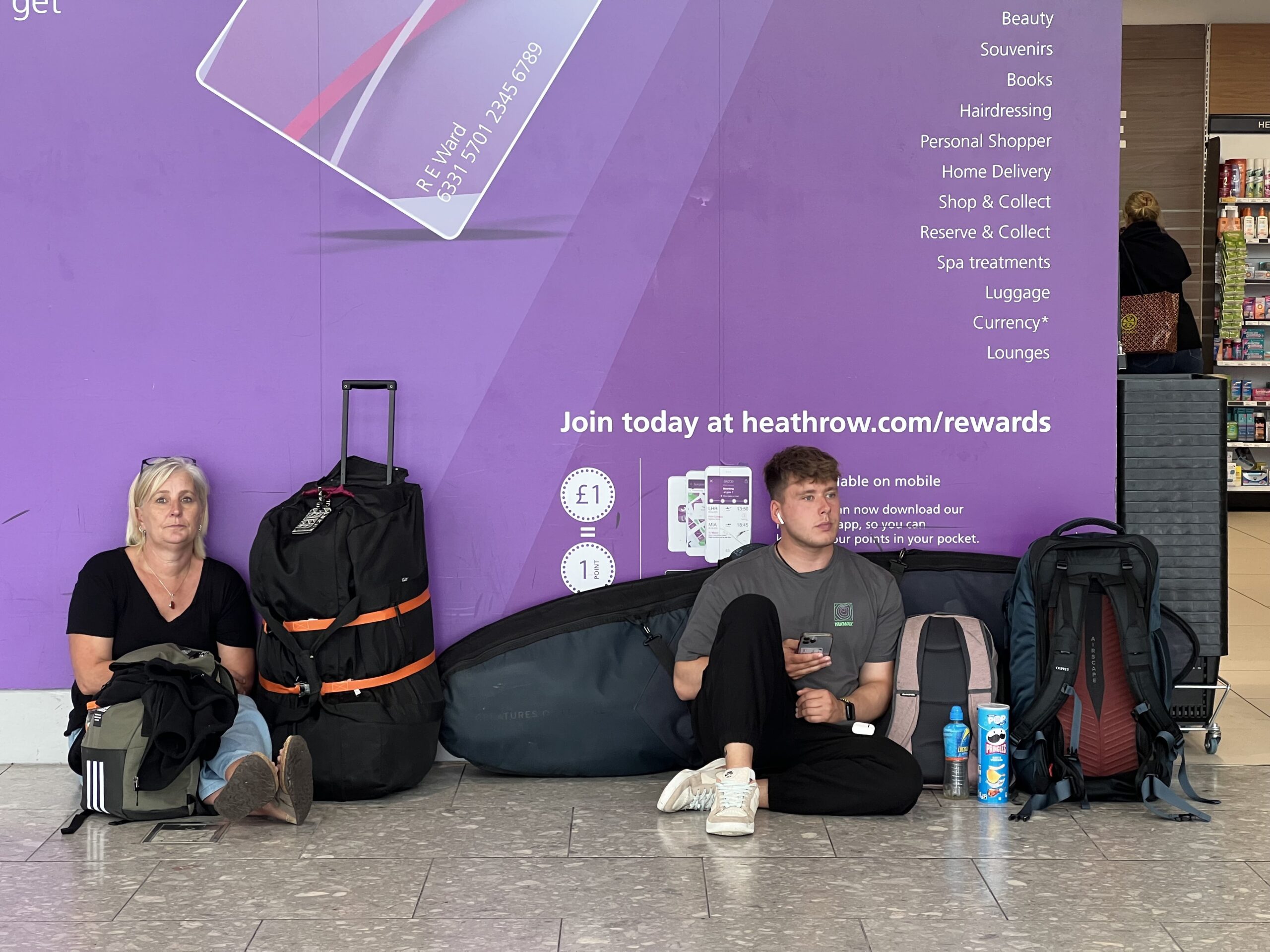Only a handful of flights departing from Heathrow were delayed or cancelled on Monday, as weekend disruption caused by a cyber attack spilled over into the working week.
Heathrow, Brussels and Berlin airports all experienced delays and disruption on Saturday following the attack affecting Collins Aerospace, which provides automatic check-in services for several airlines at multiple airports.
Issues started on Friday night and continued throughout Saturday, with flights cancelled or delayed as the impacted airlines had to carry out check-in and boarding operations manually.
On Sunday, several departures from London Heathrow’s Terminal 4 took place up to two hours behind schedule – and on Monday, disruption continued.
Of the departures disrupted, a 11.30 Lufthansa flight to Frankfurt was cancelled, while a 10.30am Lufthansa flight to Frankfurt and a 1pm Brussels Airlines flight to Brussels both delayed.
Elsewhere, at Brussels airport, more than 50 arrivals and departures have been cancelled. Berlin and Dublin also continue to see disruption.

In a statement on Monday morning, Heathrow said: “Work continues to resolve and recover from an outage of a Collins Aerospace airline system that impacted check-in. We apologise to those who have faced delays, but by working together with airlines, the vast majority of flights have continued to operate.”
Meanwhile, mystery surrounds the identity of the hackers and the purpose of the attack.
Jonathan Hall KC, the independent reviewer of terrorism legislation, said attributing the attack would not be easy, but when asked on Times Radio if a state like Russia could have been responsible for the attack, he said “anything is possible”.
He said: “Yes, it’s possible that this is carried out directly by a state, but it’s equally possible to be carried out by a private entity that is, sort of, allowed to operate and does it for a combination of public and private reasons.”
That meant attacks were “deniable” for states, even if hackers were based there.

He said: “There are some very capable private entities, let’s say, in Russia or China, who won’t necessarily be being directed by Russia or China.
“So it’s not as if a member of the GRU (the Russian military intelligence agency) is necessarily going into a company and saying that ‘you’ve got the capability of knocking out some UK infrastructure, please go and do it now’.
“It’s also possible, in this ecosystem that exists in some of these countries, that a company, an entity, carries out a hack and simply does it for patriotic reasons, or does it because they want to curry favour, or maybe there’s some sort of informal relationship with them.
“So although we think, understandably, about states deciding to do things it is also possible for very, very powerful and sophisticated private entities to do things as well.”
